Navigating supplier relationships can sometimes lead to unexpected challenges, particularly when it comes to conflicts of interest. It's essential for businesses to maintain transparency and trust, ensuring that all parties involved are on the same page. One way to achieve this is by using a conflict of interest declaration letter, which lays the groundwork for open communication and ethical practices. Curious about how to craft the perfect letter for your suppliers? Read on to discover our tips and templates that can help you address this sensitive issue effectively.

Supplier Information and Identification
A supplier conflict of interest declaration ensures transparency and integrity in business relations. It requires detailed supplier information, including the supplier name, address, contact information, and registration number. Identification of potential conflicts exceeds merely stating relationships; it encompasses business affiliations, ownership interests, or any influence over procurement decisions. Specific events, such as past contractual disputes or loyalty agreements with competitors, may contribute to perceived biases. The declaration might also include compliance with regulations, such as the Foreign Corrupt Practices Act, ensuring that the supplier maintains ethical standards in all dealings. Providing this comprehensive information fosters trust and upholds corporate governance values within industries.
Description of Relationship or Interest
A conflict of interest declaration is essential for maintaining ethical standards in business relationships. Suppliers must disclose any relationships or interests that could potentially influence their judgment or impartiality. For instance, a supplier must declare if they have a financial interest in a competitor or if they are related to a decision-maker within the purchasing company. This declaration should outline the nature of the relationship, such as having a family member in a senior position at the client organization, or ownership stakes in other competing businesses. Transparency in these declarations fosters trust and ensures fair practices throughout the supply chain.
Declaration of Potential Conflicts
A potential conflict of interest declaration is crucial for maintaining transparency and integrity in business relationships. Suppliers are often required to disclose any circumstances that may influence their ability to act in the best interest of a company. This includes existing relationships with competitors, financial interests in other entities, or personal connections that could affect decision-making. Clarity in these declarations ensures compliance with corporate governance standards and fosters trust between suppliers and the organization. By openly communicating any potential conflicts, suppliers contribute to a healthy working environment while safeguarding the company's interests.
Mitigation Plans and Measures
A conflict of interest declaration addresses potential biases in supplier relationships, ensuring ethical business conduct. Suppliers must identify any personal or financial connections to decision-makers within contracting organizations, such as public officials or corporate executives, which may influence contract awards. Mitigation plans may include regular training programs emphasizing compliance with ethical standards, appointment of independent oversight committees to review supplier relationships, and implementation of transparent bidding processes. Measures such as mandatory disclosures of relationships, auditing of supplier interactions, and establishing reporting mechanisms for conflicts can enhance accountability. Ensuring these practices are in place fosters trust in procurement processes and upholds integrity across the supply chain.
Acknowledgment and Signature
The conflict of interest declaration serves to ensure transparency in supplier relationships. Suppliers must formally acknowledge any potential conflicts that may affect their impartiality. Specific circumstances include financial interests, familial connections, or affiliations with competitors. Suspected conflicts must be declared in writing to maintain accountability. This declaration safeguards the integrity of the procurement process as established by regulations such as the Federal Acquisition Regulation (FAR) in the United States. Upon completing the declaration form, suppliers are required to sign and date it, signifying their understanding and compliance with the stated terms. A copy of this signed declaration is retained for future reference and auditing purposes.

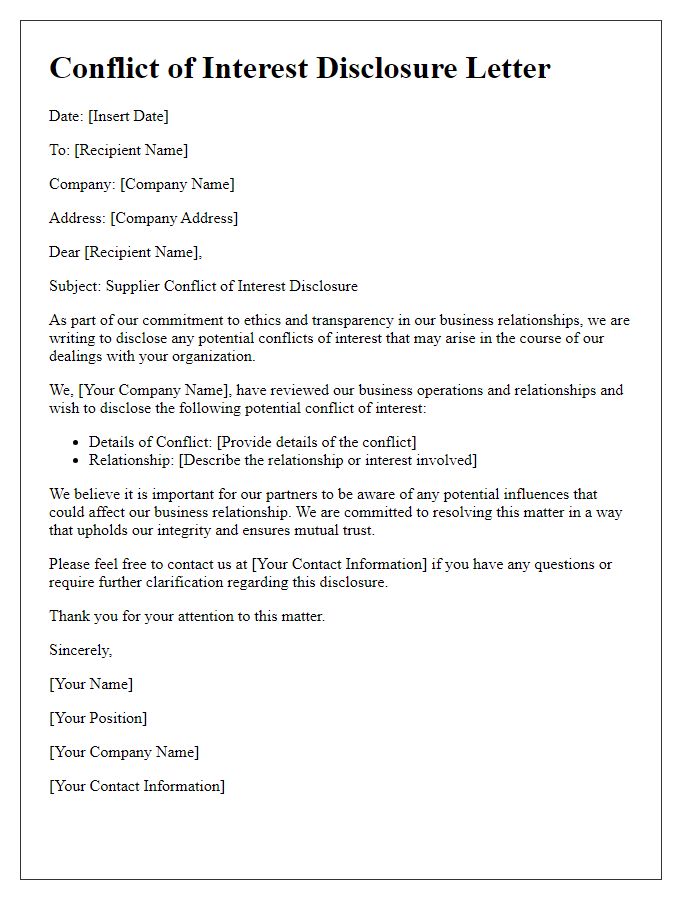
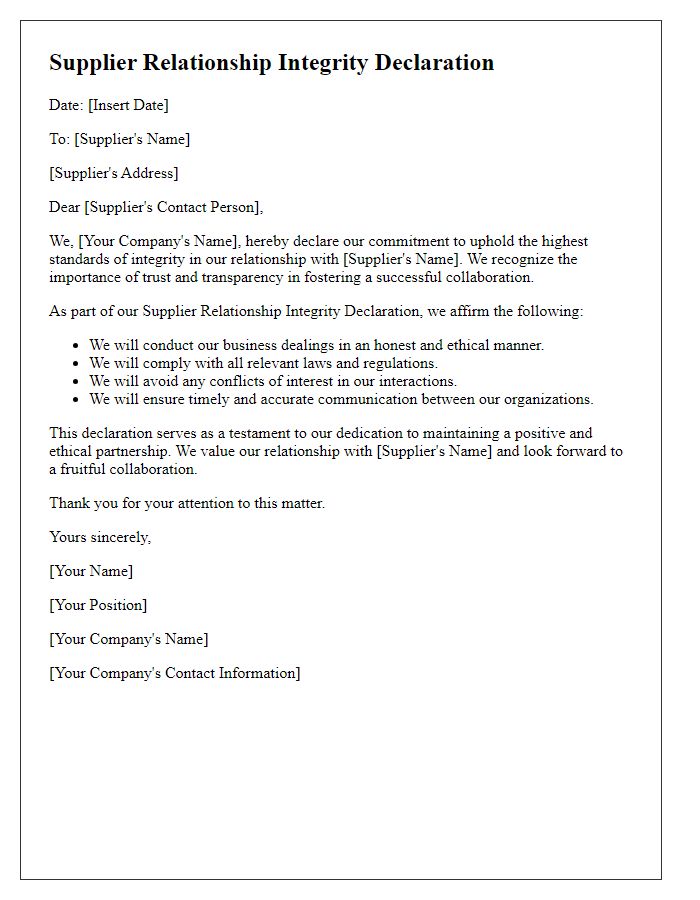
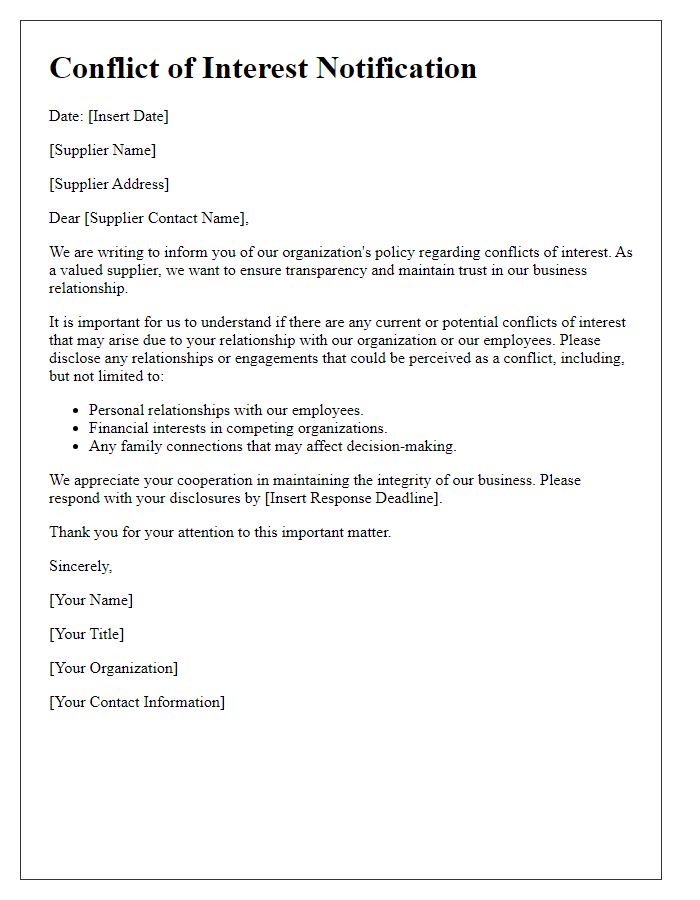
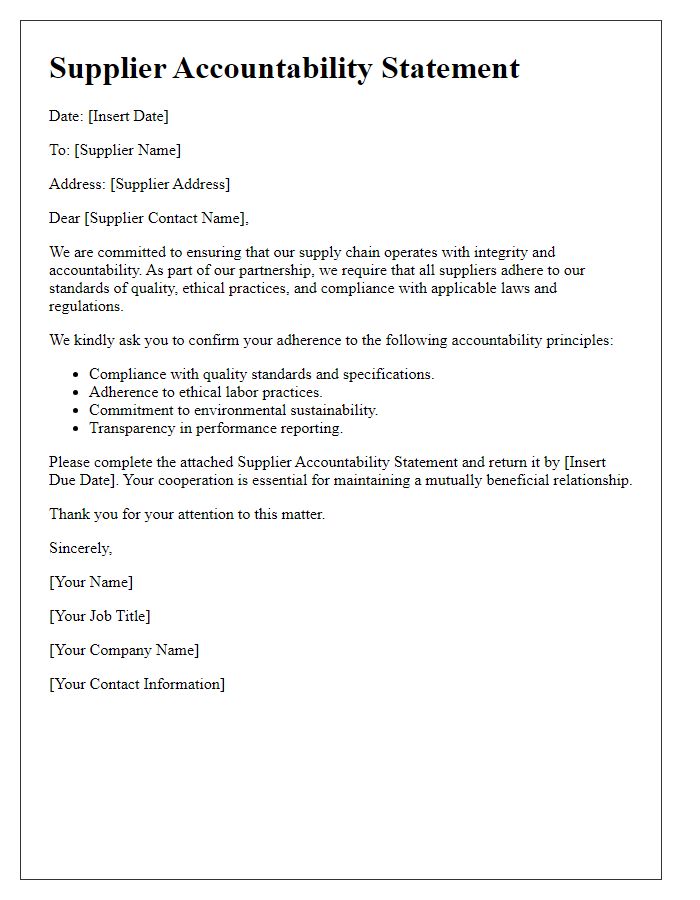
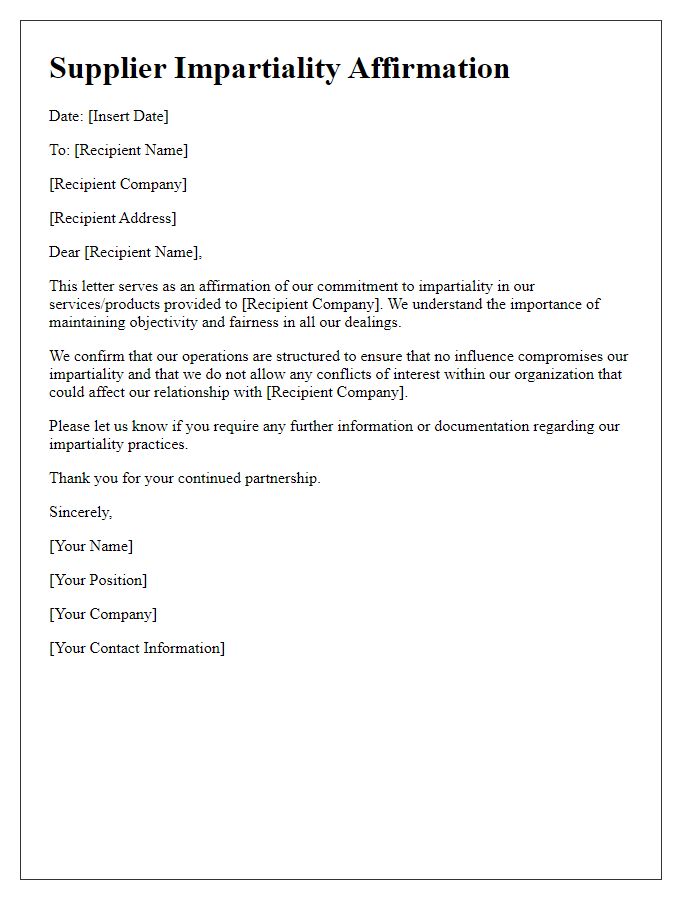
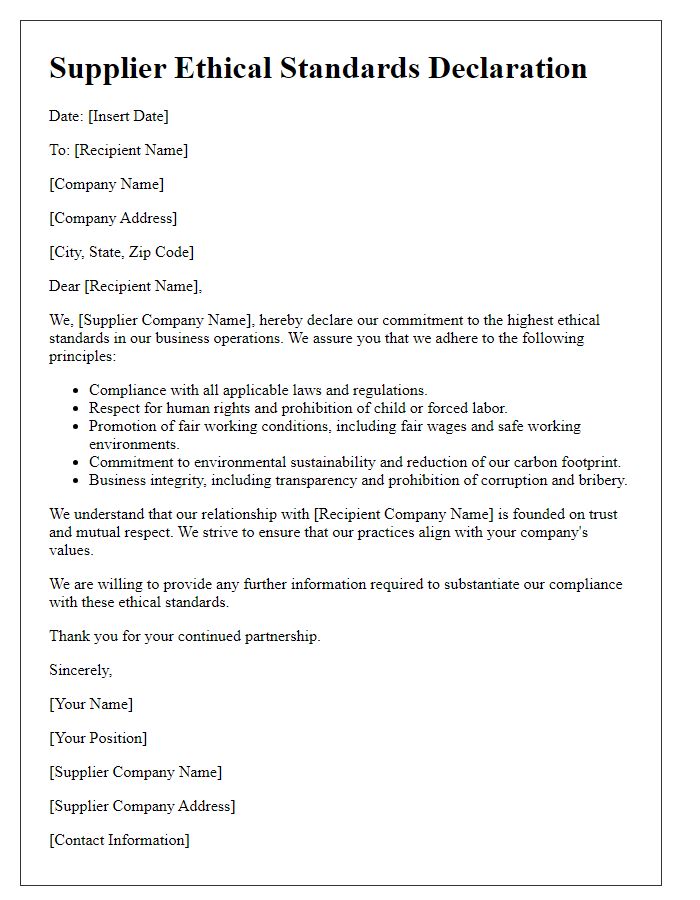
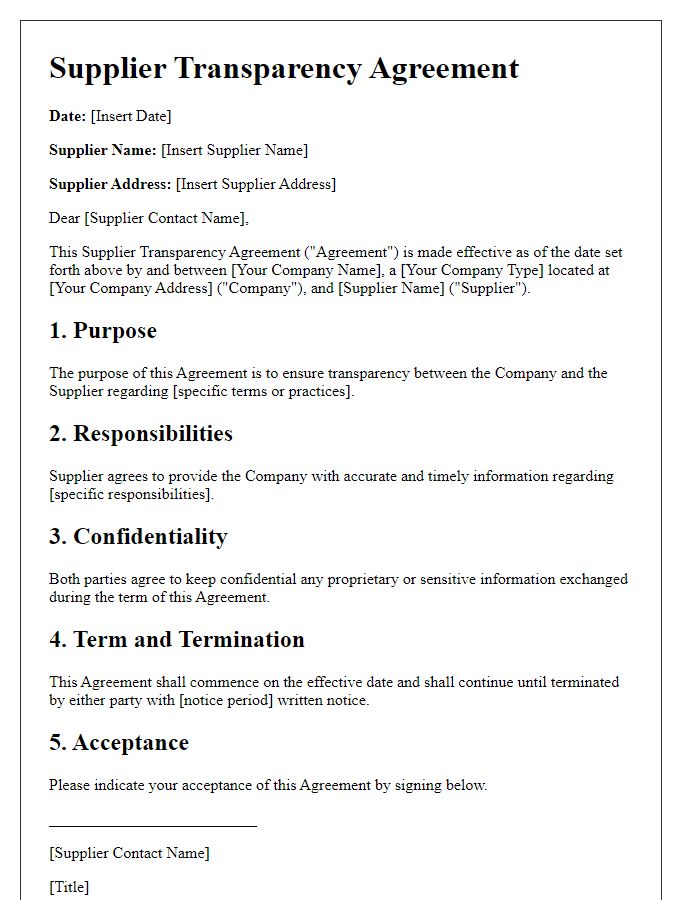
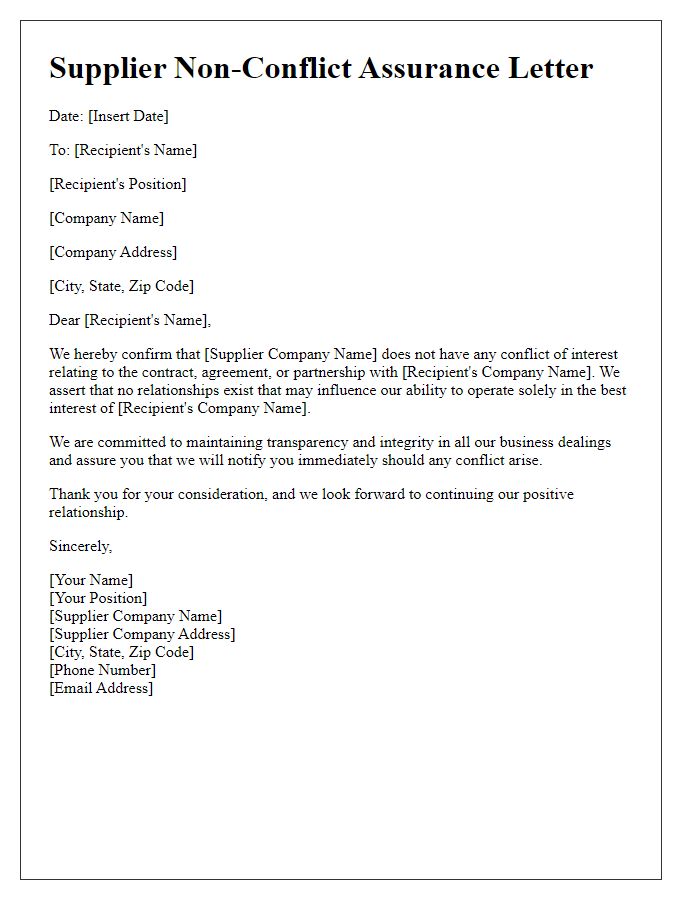
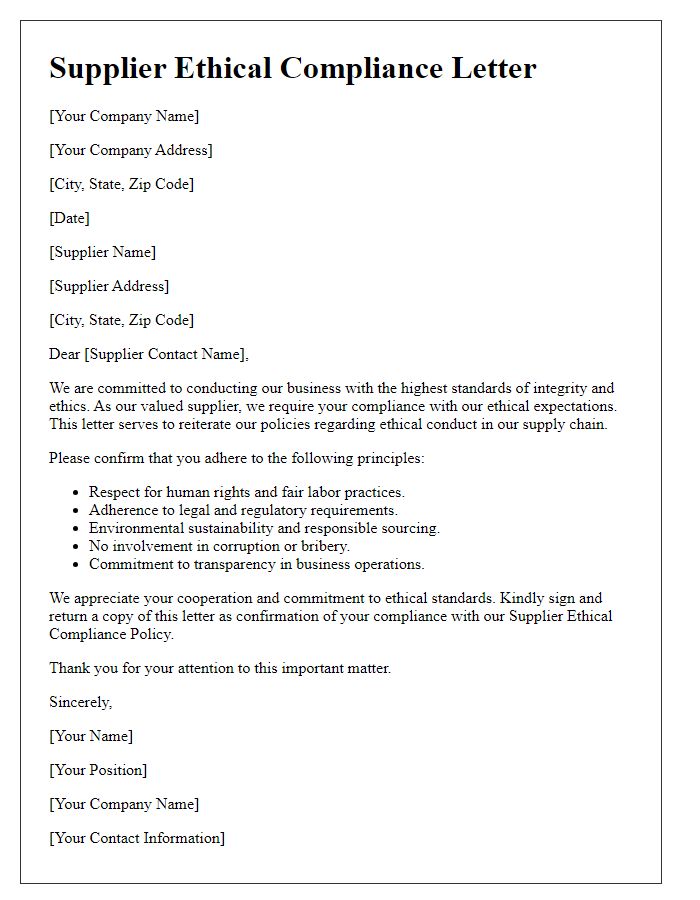
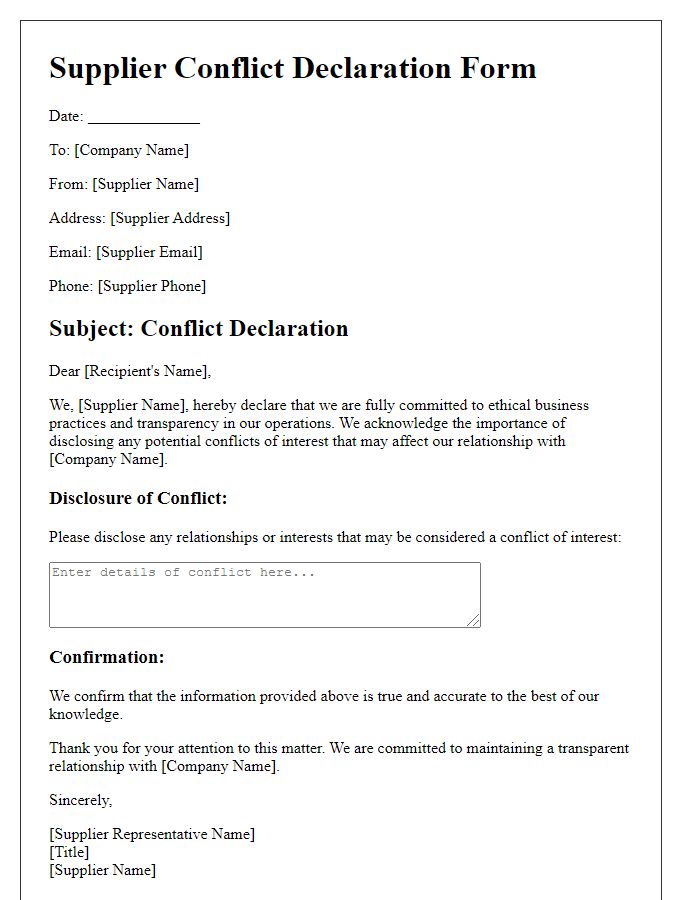


Comments